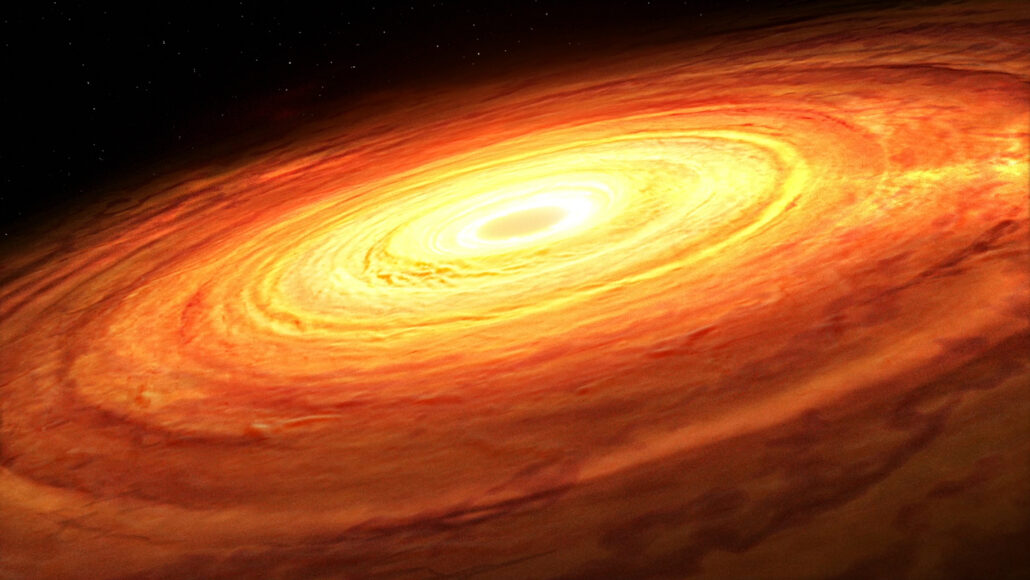Questions for ‘Here’s an easier way to weigh a black hole’

Astronomers have figured out how to use the disk of hot gas and dust around some black holes (like the one shown in this artist’s illustration) to measure a black hole’s mass.
Mark A. Garlick, Simons Foundation